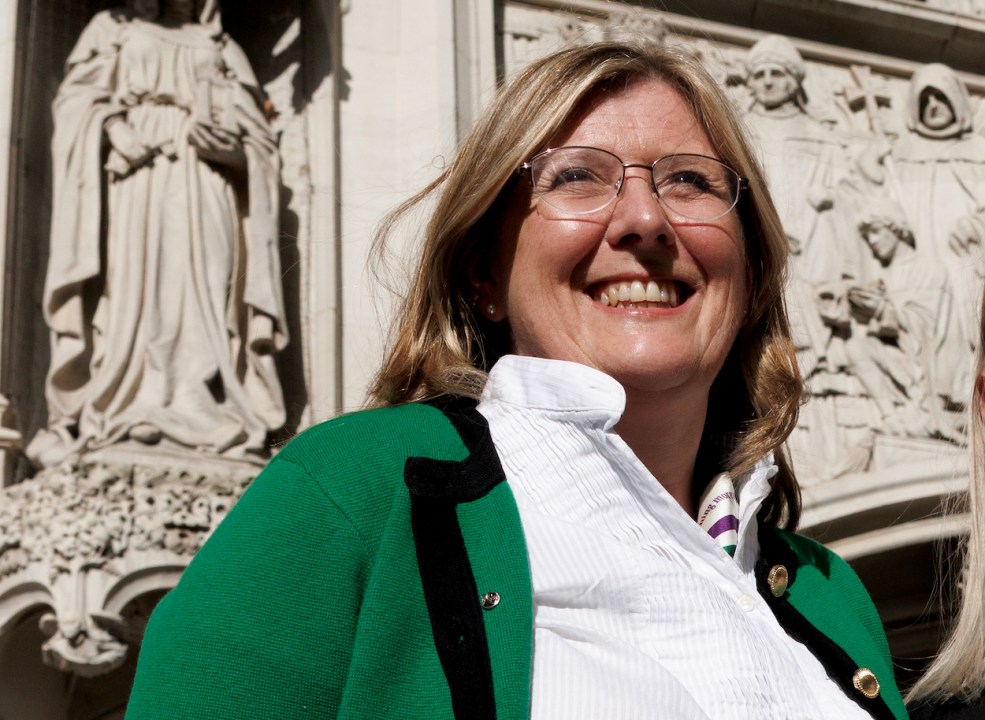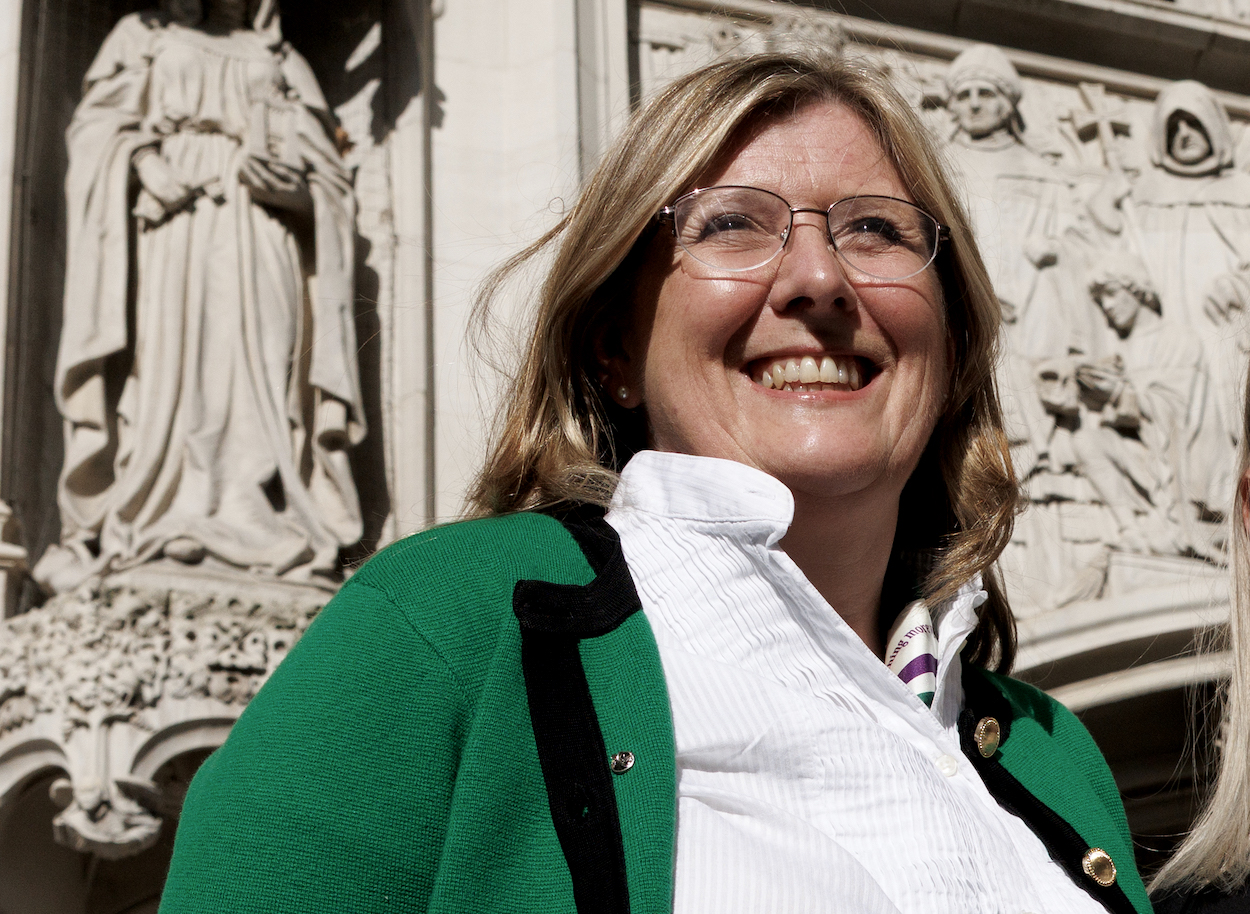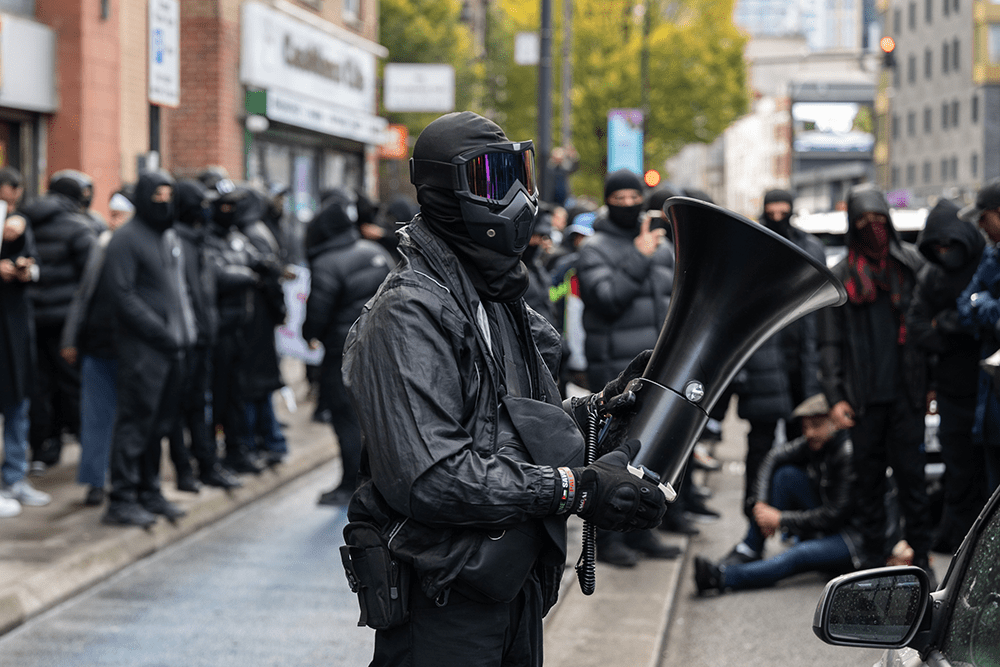One of the most fascinating cases of institutional self-harm in modern Britain is policing. Not just the oft-criticised Met (though it is spectacularly adept at inflicting needless wounds on itself) but police forces up and down the country. The two-tier policing of crimes against ethnic minorities is a particularly pungent example, but there is also the plainly divergent approaches to managing large-scale protests which might feasibly pose threats to public order.
Then there’s the treatment of Susan Smith, the Scottish feminist. She is one of the For Women Scotland campaigners who got the Supreme Court to say in black and white that, for the purposes of the Equality Act, a woman is a biological female. (In the famous victory picture outside the court, she’s the one in the emerald green majorette blazer and trousers, just daring you to ask if she is personally acquainted with the Lollipop Guild.) Smith says Police Scotland told her she would receive a recorded warning or face charges over allegedly damaging a rainbow-coloured umbrella at a protest in Edinburgh.
Smith was one of the organisers of a protest outside the Scottish Parliament on 4 September. A counter-protester, the owner of the brolly, turned up with a sound system playing loud music and there reportedly was an interaction between Brolly Man and Smith and, it is claimed, the portable rain repeller was damaged. Police Scotland swung into action and Smith could face prosecution if she refuses to accept the warning. She is being supported by the Free Speech Union, of which she is a member and which, in the interests of full disclosure, so am I.
What interests me about this episode is not the specific details themselves, though the whole thing is clearly a nonsense and, a cynic might suggest, a process-punishment against one of the most visible opponents of the Scottish establishment. No, what I find fascinating is that even after all this time Police Scotland, like so many other forces, is still agreeing to humiliate itself at the urging of the gender lobby within its hierarchy and wider civil society. We have the For Women Scotland judgment, a Prime Minister who has belatedly worked out what a woman is, and the corporate world and some sections of the public/third sectors toning down their gender radicalism. The police don’t need to read the Riot Act over a brolly – they need to read the room.
Their failure to do so is probably a product of institutional conservatism. Having gone all-in on gender ideology, allocated time and resources to enforcing it throughout the organisation, and soured relations between some officers and the top brass in the process, there will be a reluctance inside Police Scotland to volte face. A volte-face means someone high up got things very wrong and when that happens some troublemaker is likely to start using the most offensive word in the policing bureaucracy: accountability. But the refusal to call time on this era of hyper-politicisation of policing, and not just on gender issues, is acutely damaging to forces’ reputation among the general public.
It’s pointless saying most uniforms are as scunnered with the pronouns panto as the punters are: the uniforms are the punters’ point of contact with the police, the face of the force and the figures against whom they vent their frustrations with corporate policies and practices. There are entire layers of the Police Scotland organisational chart who have never set foot in a patrol car or on a dark street and who make the job immeasurably more difficult for those who do so every day.
There is a growing crisis of confidence in policing
As a liberal who writes for mostly centre-right publications, I see the shift in attitudes up close. There was a time when I’d write some bleeding-heart mush about cops tasering toerags too much and would be roundly derided by readers. Now, however, readers are more likely to tell me about their suspicion of the police, about how their father or uncle or whoever was a sergeant back in the day but wouldn’t recognise his old force now, about a worryingly common impression that the police are institutionally hostile to people like them. French Marxist philosopher Louis Althusser called the police a ‘repressive state apparatus’, an arm of the ruling class which enforced the dominant ideology (capitalism) on the proletariat. Substitute progressivism for capitalism and that comes remarkably close to how even mainstream right-wingers view the thin blue line today. People who once considered the left’s Acab slogan (All Cops Are Bastards) juvenile are beginning to think in similar terms: Acaw – All Cops Are Woke.
Policing isn’t easy, especially when the country’s various parliaments legislate hyperactively, with little consideration for the practical application of the law and the position of those tasked with applying it. There is only so much even the most independent-minded chief constable can do to distance their force from the consequences of enforcing ideology, whether on gender or other fashionable causes. But Police Scotland, and not only Police Scotland, urgently has to reassess the course it is on, for it is a path that will only cause more members of the public to feel alienated from the police and distrustful of frontline officers. There is a growing crisis of confidence in policing, and when Police Scotland behaves as it has in the case of Brollygate, it only hardens the prejudices of previously sympathetic people who have concluded that the police are pursuing an agenda unconnected to the upholding of the law.









Comments